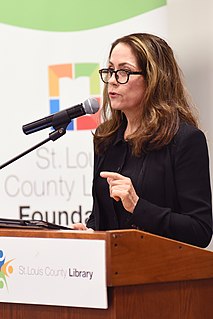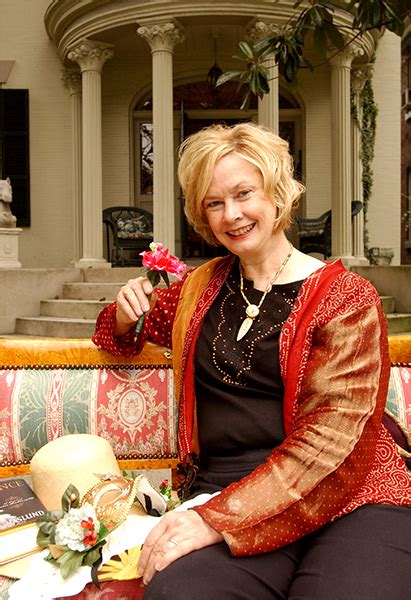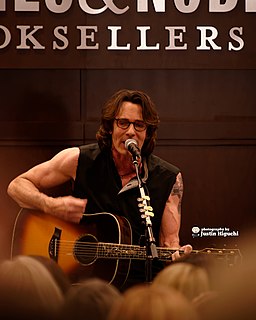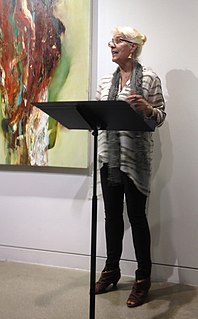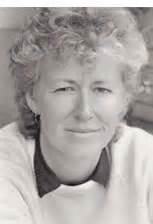Top 434 Memoir Quotes & Sayings - Page 8
Explore popular Memoir quotes.
Last updated on April 18, 2025.
I admire Joyce Maynard a lot, specifically her memoir "At Home in the World." Her writing is beautiful and fascinating and seemed to give me validation to the idea that I could write validly in earnest about my life with (my) very feminine point of view, and also that I could unapologetically explore the bad traits of my character (which I find to be more interesting to explore than the good traits), as well as explore other concepts that interest me like private vs public personas, age gap relationships, etc.
Gary Shteyngart has written a memoir for the ages. I spat laughter on the first page and closed the last with wet eyes. Un-put-down-able in the day and a half I spent reading it, Little Failure is a window into immigrant agony and ambition, Jewish angst, and anybody's desperate need for a tribe. Readers who've fallen for Shteyngart's antics on the page will relish the trademark humor. But here it's laden and leavened with a deep, consequential, psychological journey. Brave and unflinching, Little Failure is his best book to date
It's weird being an author because it's different than writing songs. You put so much more of yourself out there to be judged because it's a memoir. So when the reviews come in, they all feel really personal. Some people are just going to hate you no matter what. Personally, I never believe good reviews. When people tell me they love the book, I just shrug and say, "Yeah, whatever." My shrink says it's all about the love within. You have to love yourself or you'll never be able to accept compliments from anyone.
Darkroom: A Memoir in Black and White is remarkable for its truth-telling about two important issues concerning Alabama's past and present: the civil rights movement and immigration. These stories, rendered through the words and eyes of a young Latina girl who came from Argentina to Marion, Alabama, are made vivid and immediate through Weaver's highly accessible drawings and dialogue. This is a book-about maturation, family, education, and social change-every schoolchild, parent, and citizen should experience.
The only good grades I ever got in school before I was kicked out were for creative writing. I thought that fiction might be in my future but then my career took a different path once the Beatles showed me what a blast being in a band could be. Writing my memoir Late, Late at Night reminded me how much I love the craft. So I decided to give fiction a shot again.Magnificent Vibration is the result. I’m still not quite sure where it came from, but once I got going, it practically wrote itself. I’ve heard writers I admire speak of that phenomenon, so maybe I’m on the right track.
The first book by an African American I read was Carl T. Rowan's memoir, Go South to Sorrow. I found it on the bookshelf at the back of my fifth-grade classroom, an adult book. I can remember the quality of the morning on which I read. It was a sunlit morning in January, a Saturday morning, cold, high, empty. I sat in a rectangle of sunlight, near the grate of the floor heater in the yellow bedroom. And as I read, I became aware of warmth and comfort and optimism. I was made aware of my comfort by the knowledge that others were not, are not, comforted. Carl Rowan at my age was not comforted.
Oh, my God. What if you wake up some day, and you're 65 or 75, and you never got your novel or memoir written; or you didn't go swimming in warm pools or oceans because your thighs were jiggly or you had a nice big comfortable tummy; or you were just so strung out on perfectionism and people-pleasing that you forgot to have a big juicy creative life, of imagination and radical silliness and staring off into space like when you were a kid? It's going to break your heart. Don't let this happen.
Like Sylvia Plath, Natalie Jeanne Champagne invites you so close to the pain and agony of her life of mental illness and addiction, which leaves you gasping from shock and laughing moments later: this is both the beauty and unique nature of her storytelling. With brilliance and courage, the author's brave and candid chronicle travels where no other memoir about mental illness and addiction has gone before. The Third Sunrise is an incredible triumph and Natalie Jeanne Champagne is without a doubt the most important new voice in this genre.
And it's kind of my own fault too, in the sense that I've used my own life as a literary device so much. I think people feel very comfortable reviewing the idea of me, as opposed to what I've actually written. I find that most of the time, when people write about one of my books, they're really just writing about what they think I may or may not represent, as sort of this abstract entity. Is that unfair? Not really. If I put myself in this position where I'm going to kind of weave elements of memoir into almost everything, well, I suppose that's going to happen.
I'm surprised how often I'm asked about being a man with a woman narrator. I'm not the first, nor will I be the last. It's been done forever, but we seem to forget that. The whole notion of "write what you know" is not just boring, but wrong. Lately it seems like every novel has to be a memoir. I'm a boring person, but I'm a writer with a relatively vivid imagination. And when people ask me about how I find the voice of a woman, I tell them that my life is run by women.
The journey toward authenticity, toward becoming whole is made palpable in Maureen Seaton's Sex Talks to Girls: A Memoir. It shines its considerable light on the passage from religion toward faith, from self-medication to sobriety, from daughterhood to motherhood, from being the disembodied 'good girl' to embracing her own bad lesbian self. In crisp chapters, Seaton leads us, step-by-step, over this harrowing and blissful road, so distinct from yet so much like our own.
I’ve always liked to read about extremely wealthy people, especially when they are crazy (like Howard Hughes or Caligula.) While writing this book I did a lot of fun research on robber barons like Rockefeller and Morgan. But the most helpful stuff came from studying royal families and mad emperors. The best book I read was probably A King’s Own Story, which is the memoir of Edward VIII. Also, anything about Ivan the Terrible or Ted Turner.
My Family and Other Saints echoes Gerald Durrell's classic memoir, My Family and Other Animals, not only in its title, but in its wonderful humor and lyrical prose. Like Durrell, Kirin Narayan takes the reader to a fascinating world far from our own, and brings to life its myriad sights, sounds and smells, while revealing the profound cultural beliefs of its people. India is just the most complex character among a cast of characters-family members, gurus, hippies, and neighbors-all of whom I now count as old friends.
Jay Harman is the quintessential biomimic, a principled inventor who sees solutions everywhere he looks in the natural world. And he looks deeply, with the soul of a student. He moves with grace from a world of waving sea kelp to the world of sustainable design, bringing nature's wisdom into the board rooms of global companies, to the design tables of the engineers and designers who make our world. This is more than a business book, more than a memoir, more than a new way to solve global challenges. It's a book about a new way to think.

